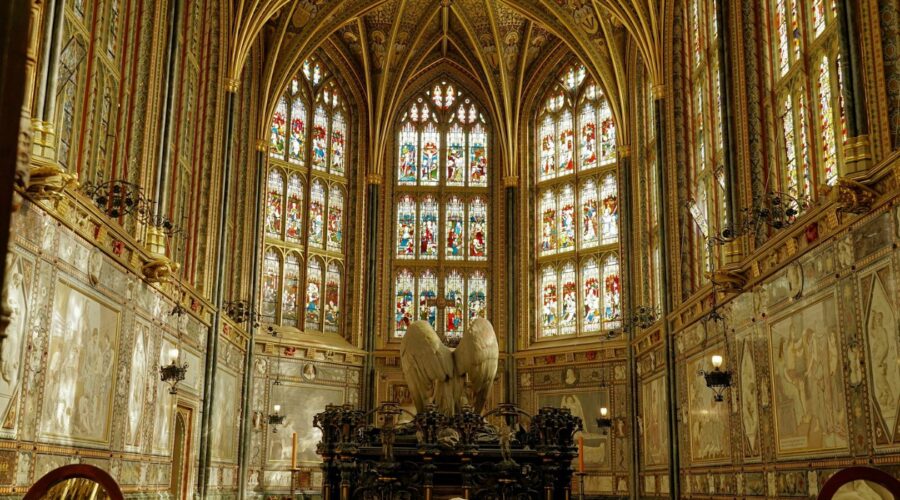Your cart is currently empty!
Discover the Guiding Light: A Comprehensive Guide to Lighthouse Churches

Introduction
In the realm of Christian communities, Lighthouse churches stand out as beacons of hope and transformation. These churches are renowned for their innovative approaches, vibrant worship experiences, and unwavering commitment to serving their communities. This comprehensive guide will delve into the captivating world of Lighthouse churches, exploring their unique characteristics, impact, and journey towards illuminating the world.
Defining Lighthouse Churches: A Guiding Compass
Characteristics of Lighthouse Churches
- Strong emphasis on personal growth and spiritual development: Lighthouse churches prioritize the spiritual well-being of their members, offering opportunities for Bible study, prayer, and retreats.
- Contemporary worship experiences: They embrace modern music, digital technology, and creative arts to create engaging and uplifting worship services.
- Community involvement and outreach: Lighthouse churches actively participate in their communities, providing services such as food banks, homeless shelters, and support groups.
- Innovative leadership: They are known for adopting cutting-edge approaches to church management, outreach, and discipleship.
Purpose and Impact: Shining Light in Darkness
Purpose of Lighthouse Churches
Lighthouse churches exist to:
- Empower individuals in their Christian faith
- Foster a welcoming and supportive community
- Provide hope and inspiration to those seeking spiritual growth
- Make a positive impact on the wider community
Impact of Lighthouse Churches
The impact of Lighthouse churches extends beyond their walls:
- Transforming lives: They provide a sanctuary for individuals seeking spiritual healing and growth.
- Creating impact in communities: Their social outreach programs address urgent community needs.
- Inspiring change: Lighthouse churches foster a culture of hope and resilience, inspiring individuals to make a difference.
Historical Evolution: A Journey of Illumination
The history of Lighthouse churches traces back to the 19th century, where they emerged as a response to the changing religious landscape:
- Early 19th century: Wesleyan Methodist revivalists emphasized personal conversion and spiritual experience.
- Mid-19th century: The Holiness Movement stressed personal purity and a deep relationship with God.
- Late 19th century: The Pentecostal Movement brought an emphasis on spiritual gifts and charismatic experiences.
In the 20th century, Lighthouse churches emerged as a distinct movement, combining elements of these earlier movements with a focus on contemporary worship and community involvement.
Contemporary Challenges and Opportunities: Navigating the Tides
Lighthouse churches, like any organization, face challenges and opportunities in the modern world:
Challenges
- Maintaining relevance in a rapidly changing society: Balancing tradition with innovation can be a delicate task.
- Addressing social justice issues: Navigating the complexities of social issues while remaining faithful to their beliefs.
- Fostering unity amidst diversity: Creating inclusive and welcoming communities that embrace different perspectives.
Opportunities
- Leveraging technology: Using digital platforms to expand reach and connect with a wider audience.
- Partnering with other organizations: Collaborating with community groups, non-profits, and churches to amplify impact.
- Training and empowering leaders: Investing in the development of future church leaders who are equipped to navigate the changing landscape.
Tips for Choosing a Lighthouse Church: Finding Your Guiding Star
Finding the right Lighthouse church is a personal journey. Here are some tips to help you make an informed decision:
- Research different churches: Explore websites, attend services, and talk to members.
- Consider your values and beliefs: Find a church that aligns with your spiritual convictions.
- Look for a strong sense of community: A welcoming and supportive environment is crucial.
- Pay attention to the leadership: The pastor’s vision and guidance will shape the church’s direction.
- Trust your intuition: Ultimately, the best church for you is the one where you feel connected and inspired.
Conclusion: Illuminating the Path Forward
Lighthouse churches are not merely buildings but vibrant communities that offer guidance, hope, and transformation. They embody the spirit of Christianity by illuminating the way towards spiritual growth, community involvement, and a brighter future. As we navigate the complexities of the 21st century, Lighthouse churches will continue to shine as beacons of light, guiding individuals and communities towards a fulfilling and meaningful life.